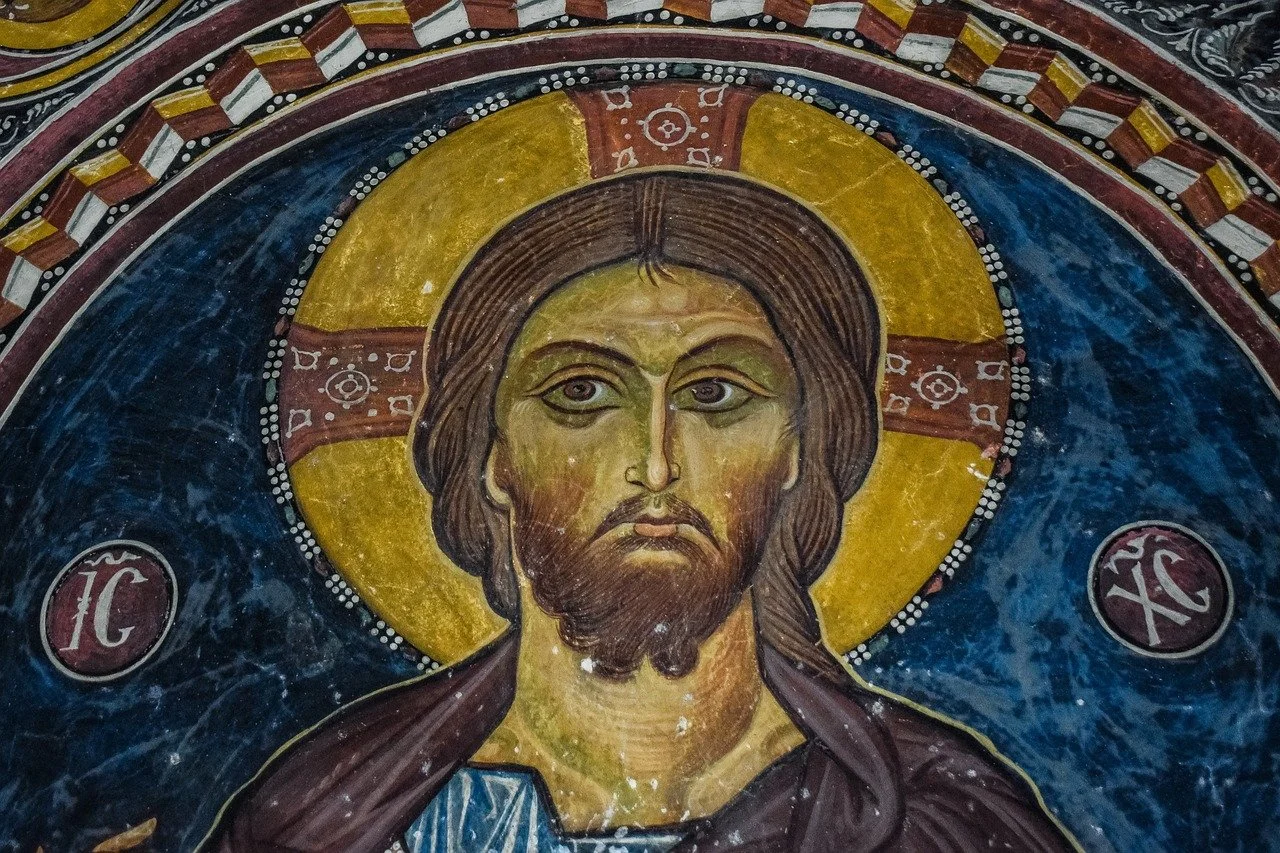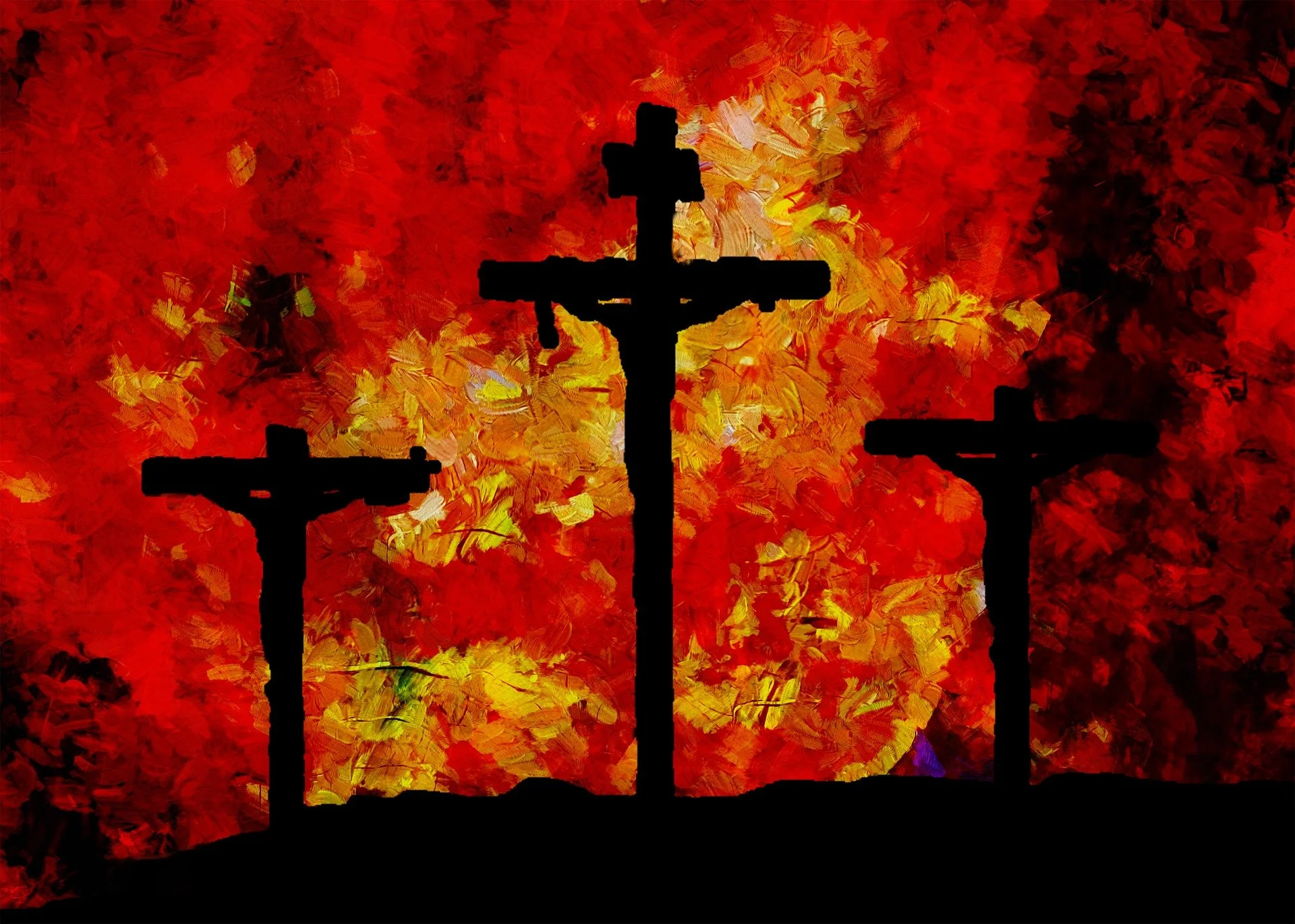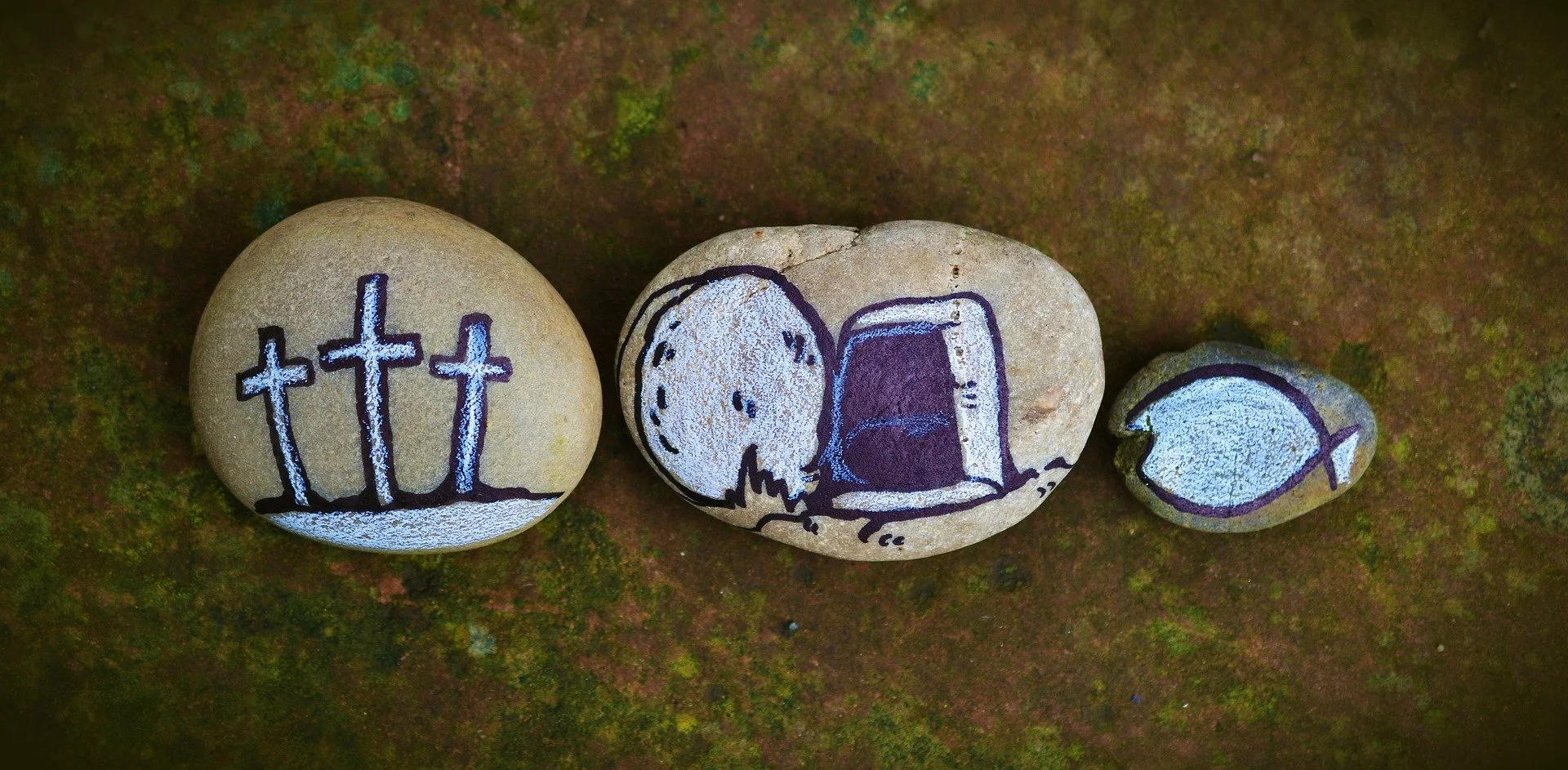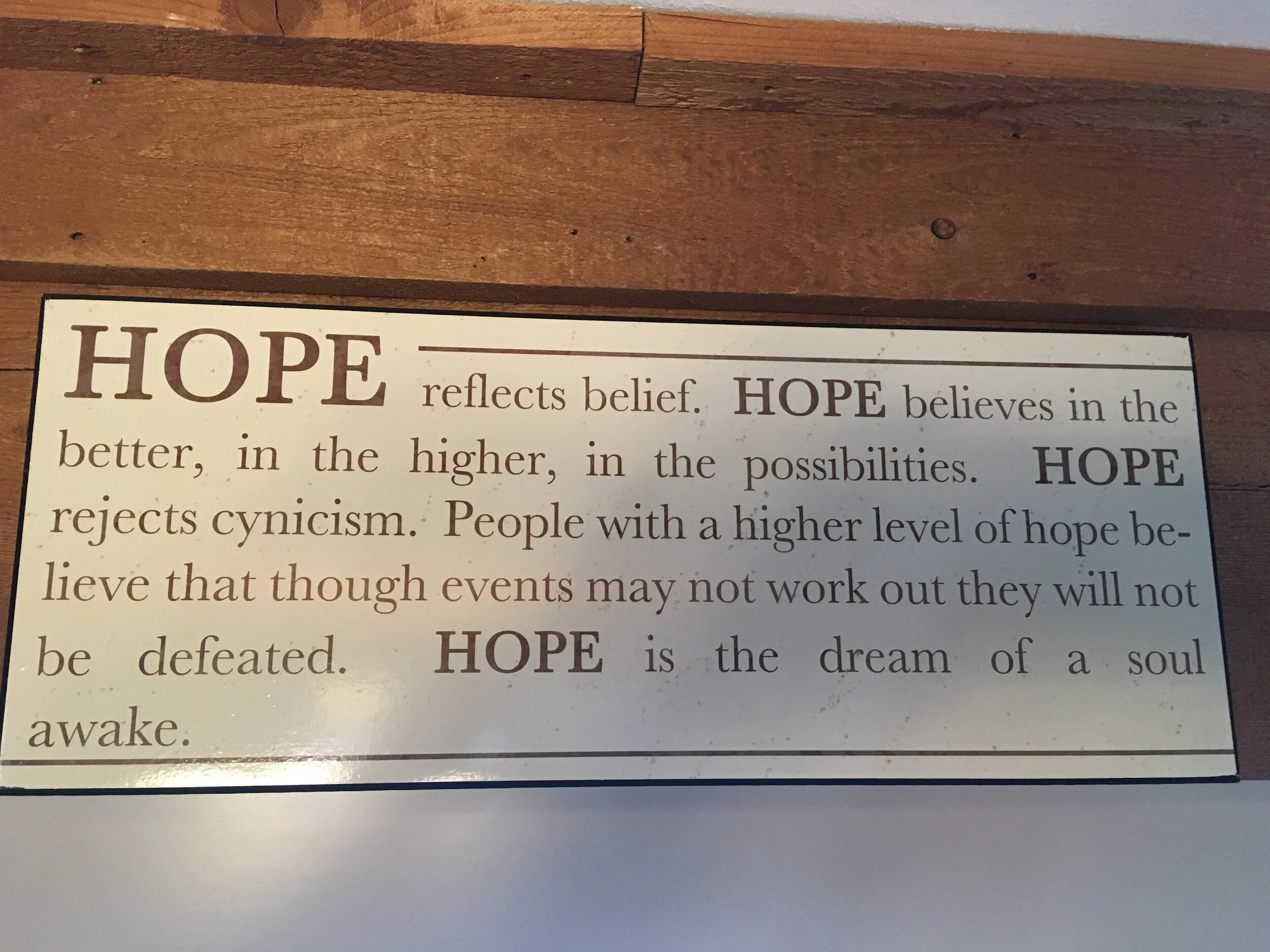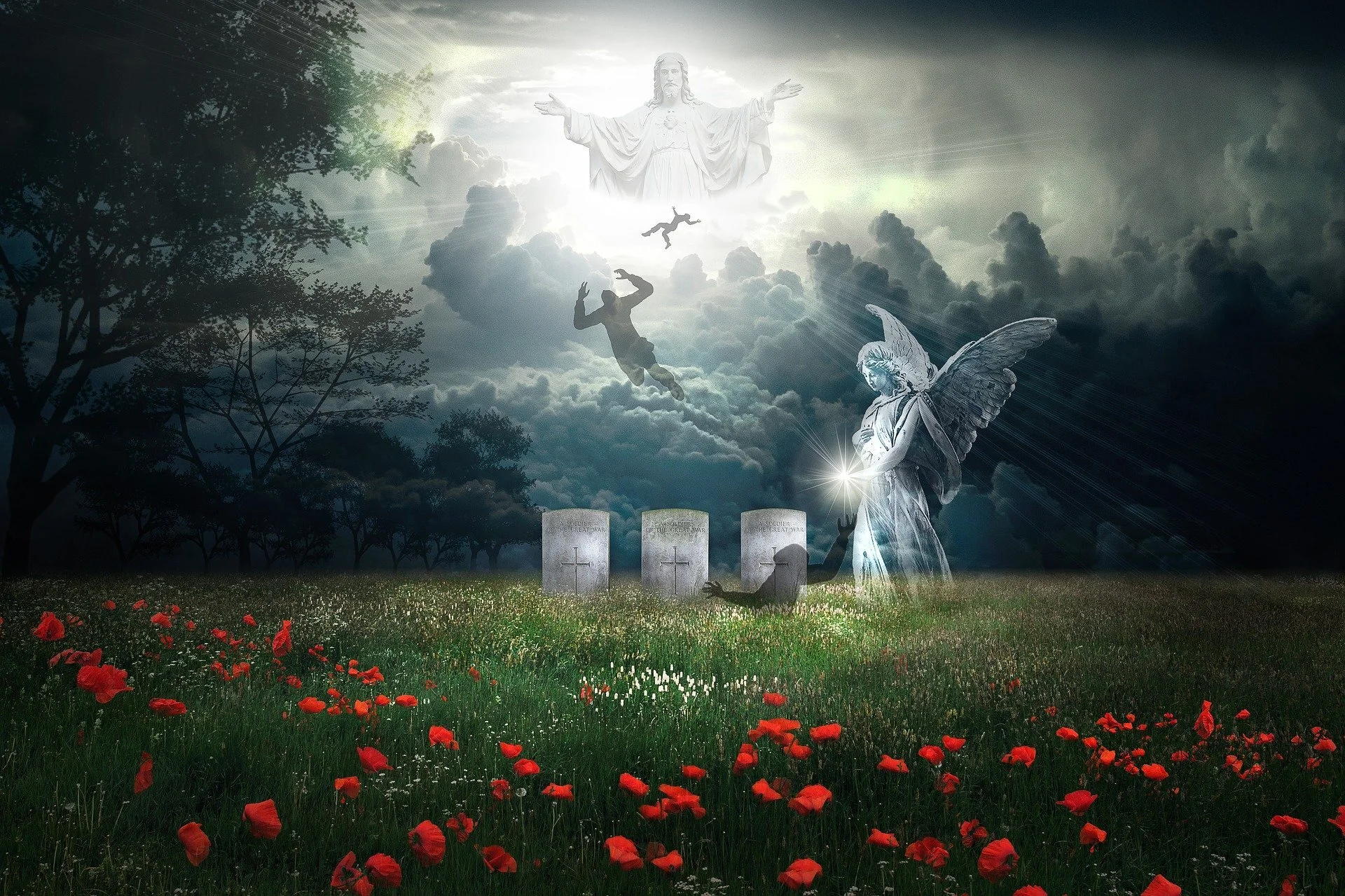Mulling It Over: Romans 8:37-39 - Conquerors because We are Convinced
It has taken us a long time to get through this one chapter of Romans, but I believe it has been worth it to take such amazing doctrine one bite at a time. God’s Word is truth and it is life transforming, so we do ourselves an injustice when we skim quickly through its unfathomable wisdom and insights. Today we are going to finished this chapter with the last three verses.
Image by Jiří Pohlídal from Pixabay
“37 But in all these things we overwhelmingly conquer through Him who loved us.
38 For I am convinced that neither death, nor life, nor angels, nor principalities, nor things present, nor things to come, nor powers,
39 nor height, nor depth, nor any other created thing, will be able to separate us from the love of God, which is in Christ Jesus our Lord.”
We spent the last two years looking at Romans 8 and we have discovered amazing things. We learned that if we are in Christ Jesus we are not condemned. We also learned that the law is not able to accomplish what Christ accomplished by the shedding of His blood on the cross and His resurrection from the dead. In addition we learned our flesh is something that we will struggle with until it no longer binds us to this earth, but the good news is that even in our flesh we are loved and cherished by an amazing God who desires that we call Him Father. His Spirit prays for us at a gut wrenching level that we cannot understand.
Even still, we face obstacles as we walk this life. The enemy of mankind, Satan does everything he can to trip us up and to make us think that we are separated from our Creator. He regularly sabotages our efforts to abide, but the truth is he cannot separate us from God.
Let’s look at these last three verses phrase by phrase.
But in all these things - This grouping of five words is referring back to the list Paul gives us in verse 35: tribulation, distress, persecution, famine, nakedness, peril or sword. However, I would like to add that it can also be referring to what was previously said throughout the chapter which would include: condemnation, the flesh, suffering, corruption, and death. Indeed, in ALL these things…
Image by Dimitris Vetsikas from Pixabay
We overwhelmingly conquer - We aren’t just scraping by, winning by the skin of our teeth, we are overwhelmingly conquering. If we look more closely at the word overwhelm we see that it includes the idea of overcoming, and engulfing.
I love this idea. We don’t just conquer sin and all the other things on the list, we do it by overcoming it and completely engulfing it. I had a flash back to the movie, The Blob, from 1958, where an alien entity crashes on earth and begins consuming everything in its path. Ha, ha. We crush and smother the opposition, that’s what it means for us to conquer in His name.
I know many of us don’t feel like we are conquering. I have days where I feel more like I am being consumed by that alien blob, than crushing the things that come against me. So how do we do it? Obviously, it isn’t something we do in our own strength. The next phrase gives us a clue…
Through Him who loved us - Just as Jesus said -
“4 Abide in Me, and I in you. As the branch cannot bear fruit of itself unless it abides in the vine, so neither can you unless you abide in Me.”
It is time we own up to the fact that without Jesus we are lost, and I don’t just mean spiritually. We just can’t do the things that Jesus does. We aren’t immortal, yet, and as long as we are in this flesh we will struggle. This was part of the reason Jesus sent the Holy Spirit.
Image by Arnie Bragg from Pixabay
“5 “But now I am going to Him who sent Me; and none of you asks Me, ‘Where are You going?’
6 But because I have said these things to you, sorrow has filled your heart.
7 But I tell you the truth, it is to your advantage that I go away; for if I do not go away, the Helper will not come to you; but if I go, I will send Him to you.
8 And He, when He comes, will convict the world concerning sin and righteousness and judgment;
9 concerning sin, because they do not believe in Me;
10 and concerning righteousness, because I go to the Father and you no longer see Me;
11 and concerning judgment, because the ruler of this world has been judged.
12 “I have many more things to say to you, but you cannot bear them now.
13 But when He, the Spirit of truth, comes, He will guide you into all the truth; for He will not speak on His own initiative, but whatever He hears, He will speak; and He will disclose to you what is to come.
14 He will glorify Me, for He will take of Mine and will disclose it to you.
15 All things that the Father has are Mine; therefore I said that He takes of Mine and will disclose it to you.”
We are able to overwhelmingly conquer because we have the Holy Spirit. Through this third person of the Triune God we don’t just learn of His love, we know His love. Through this ethereal being we are given full knowledge of who God is and how He operates in our lives. True, there are still things we don’t and won’t know until we have transferred from this earthly world to the heavenly one, but with the Holy Spirit’s life in us we are overcome and engulfed in all that is holy, beautiful and right.
For I am convinced - the author of this epistle, the Apostle Paul, is confident in who Christ says that He is, and knows the transformative power of the Spirit in his own life. The Holy God did the work of convincing him, let Him do the work of convincing you.
“6 For I am confident of this very thing, that He who began a good work in you will perfect it until the day of Christ Jesus.”
Image by Eliane Meyer from Pixabay
That neither death, nor life - I might be stating the obvious, but we often think death is the main thing that will, in the end, separate us from God’s love, but those of us who have put our faith in Christ know this will not be the case. Death will be the thing that takes us out of this world and opens the door to our heavenly home.
It is more likely the case that we allow life to separate us from God’s love, and this is where we need to be aware and keep an eye on our walk with Him. In reality, there is nothing that can keep us from God’s love, but we can certainly do things that make us feel as though He is far away.
You regularly hear me talking about the idea of abiding in Christ. That is because it is so very important to stick close to Him. Life is hard, and our enemy is relentless. He will use any chance he can to turn our eyes away from our Savior to the crashing waves around us.
Image by Myriam - No AI pictures in my gallery. from Pixabay
Nor angels, nor principalities - We might wonder why Paul included this in the list, but it is understood that not all created beings remained true to God. Satan was an angel and so were the demons that followed him in his attempt to usurp the throne of the King of Glory. None of these can keep us from the love of God. Let’s not forget, His seal is on us, and nothing comes into our lives that hasn’t first passed through the Father’s hands. We see this in the book of Job.
Image by Gerd Altmann from Pixabay
Nor things present, nor things to come - We know time is relentless and we cannot get away from it’s passing. In fact, its passage has a profound affect on our lives in that it makes us age, and there is nothing we can change about this fact. However, no matter what we are going through right now, or what we will face in the future, we go through it wrapped in the loving arms of Jesus.
Nor powers - We are living in uncertain times and it is pretty clear people are concerned about the powers that be, not only in our own country, but in other countries around the world. I am so thankful that God holds me and the world I live in, in His hands. Only He can and will bring about the new heavens and the new earth. No matter who is in charge, they only hold the power that God’s allows them to have.
Nor height, nor depth - It does not matter the heights we achieve in this life; not the riches, the glory, or the fame. It also doesn’t matter the depths we have fallen to; the darkest cave, the deepest ocean, none of these can separate us from the love of God. You may feel you have done something so bad, Christ will never take you back, but if you made a decision to follow Him, you cannot be separated from His love, and it is that love that can help you find your way back to Him.
Nor any other created thing - There is nothing in this world that hasn’t been created, either by the omniscient God, or by the beings He created.
Will be able to separate us from the love of God, which is in Christ Jesus - It is important to note, this love of God is only found in Christ Jesus. It is not found in Allah, Buddha, Krishna, or any of the many other beliefs and ideologies that populate our world like a patchwork quilt. Only Jesus, because He and the Father are one (John 10:30). Jesus is the One who binds us to the Father and we know this through the Holy Spirit.
Thank you so much for coming along on this journey through Romans 8. I hope you have enjoyed it and learned as much as I have.







